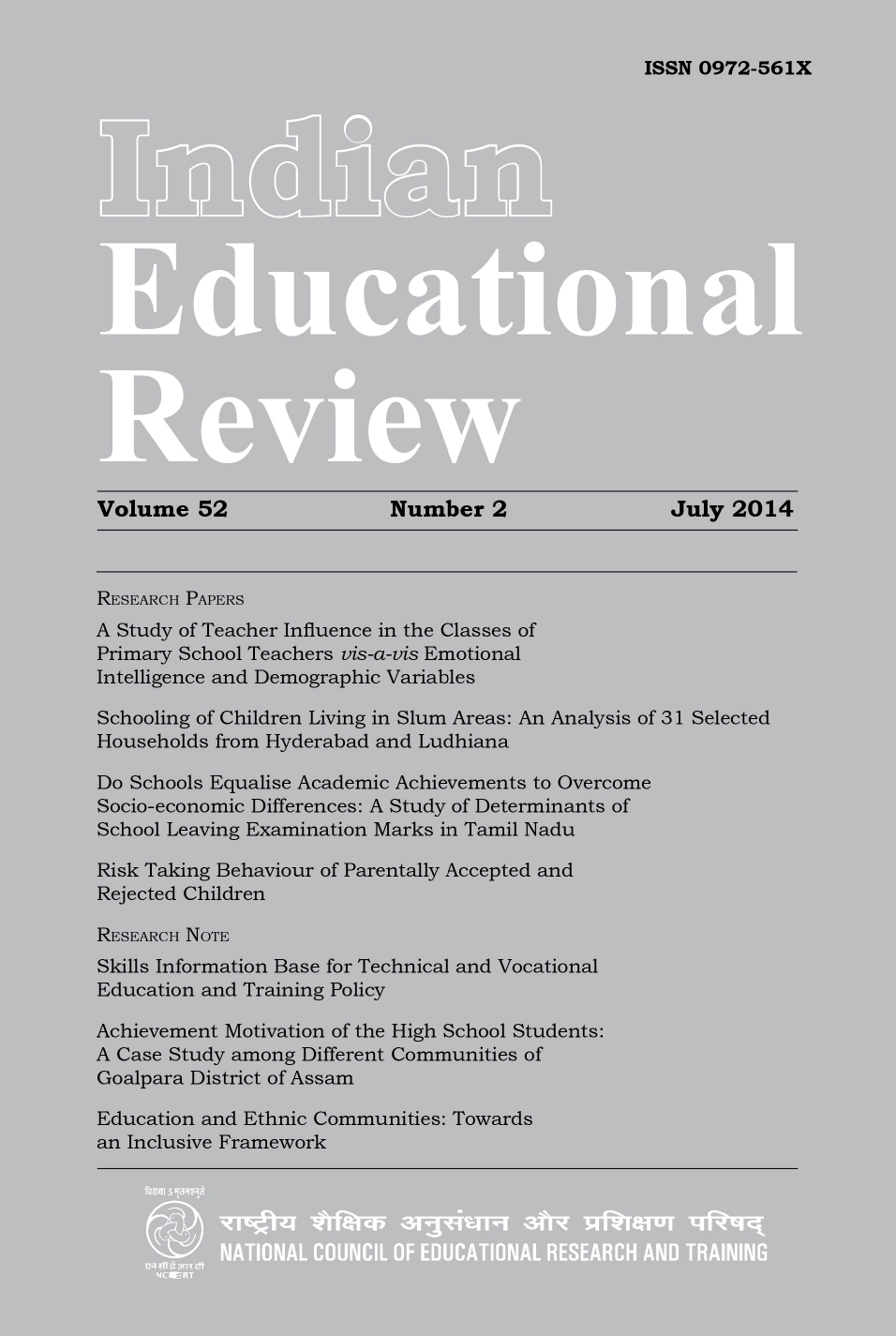Published 2014-07-31
Keywords
- Parental Acceptance-Rejection Questionnaire,
- Parental Acceptance-Rejection Theory
How to Cite
Abstract
The main objective was to study the risk taking behaviour of parentally accepted and rejected children. Rohner’s Parental Acceptance-Rejection Questionnaire (PARQ) Child Form- (1978) was used to identify the parentally accepted and rejected children and after administering this questionnaire the sample was selected which comprised of parentally accepted children (N=204) and parentally rejected children (N=204). Self-constructed risk taking behaviour scale was used to collect the data. The data was analysed by using Mean, S.D and t-test. The results reveal that parentally accepted children are low on unhealthy risk taking behaviour as compared to parentally rejected children. Parentally accepted children exhibit low or no unhealthy academic risk; exhibit less or no unhealthy social risk; are low on unhealthy future/goals risk. They are less interested in the adventurous risks which are dangerous for their health in particular and life in general in comparison to parentally rejected children who exhibit unhealthy adventurous risk. Both parentally accepted and rejected children exhibit average level of unhealthy security/peace risk like protesting against human rights violation without caring about their own life which may be due to the fact, that state is facing armed conflict since 1989.

